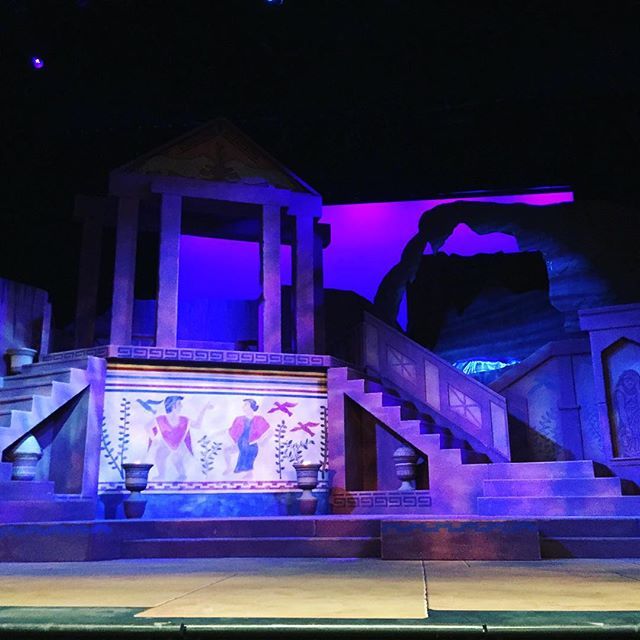REVIEW: “The Burial at Thebes”
February 25, 2016
Something spectacular happened in the Proscenium Theatre on Feb 18. UNC Wilmington’s theatre majors unveiled their latest production of “The Burial at Thebes“ and did it justice.
The stage was set for an Etruscan-style performance for Seamus Heaney’s interpretation of Sophocles’ “Antigone.“
Paul Castagno directs this riveting Greek tragedy, delivered in smooth English iambic pentameter that only a magnificently talented cast could make look easy.
This cautionary tale of honor injects touches of drama and humor into a solid piece that takes only the first scene to meet audience expectations. We sink into the story of two noble sisters, Antigone and Ismene, and an overbearing king at the end of the Theban civil war. The two sons of Oedipus, Polyneices and Eteocles, are killed by each other’s hand, leaving their Uncle Creon to rule the kingdom.
The king declares Eteocles (who defended the attack on the city) be given an authentic burial and Polyneices (the attacker) be left to decay on the battlefield. An intensely dazzling performance from Danielle Houston tidily conveys a strong and defiant Antigone with a respectable exterior, who disobeys the king and confesses a plan to bury Polyneices. After her petulant sister Ismene, played by Julia Ormond, refuses to help her, Antigone performs funeral rites for Polyneices herself, a direct offence to the king’s first official decree.
Robert Smith’s overpowering performance as Creon conveys a dominant and stubborn ruler, who angrily enforces the law and entombs Antigone, an awfully fraught decision since she is betrothed to his son, Haemon, played by Sean Owens. Creon’s overwhelming pride hurtles the play towards a tragic ending, the most classical of fatal flaws.
The full effects of this elegant one act performance results mainly from the diversity and creative convictions from the crew and cast. Some serious work went into the setting; a beautiful and aesthetically pleasing Greek temple dominated the stage, with period costumes that looked prosaic under the otherworldly lighting.
Although distracting at times (it was impressive), the set did not draw our attentions away from the resonating performances of the actors. The roles of Antigone and Creon required passionate conviction and raw emotion. A young woman who had lost her father and brothers, Houston offered an anguished heroine determined to do the right thing. Smith commanded the stage, portraying a mighty and intolerably sententious leader. Owens portrayed a passionate and loyal Haemon, and Dylan Stone, as the Guard/Messenger, played a fearful but honorable man, giving the show a nice comical edge.
The ensemble, at times, were slightly irksome with their poetic chanting, synchronized speeches and dance scenes, but they offered a generally delightful performance.
Castagno and his gifted cast provided a provoking tale of arrogance, love, sin, burial and self sacrifice in this stirring, one sequence production that proved genuinely powerful and moving.






















